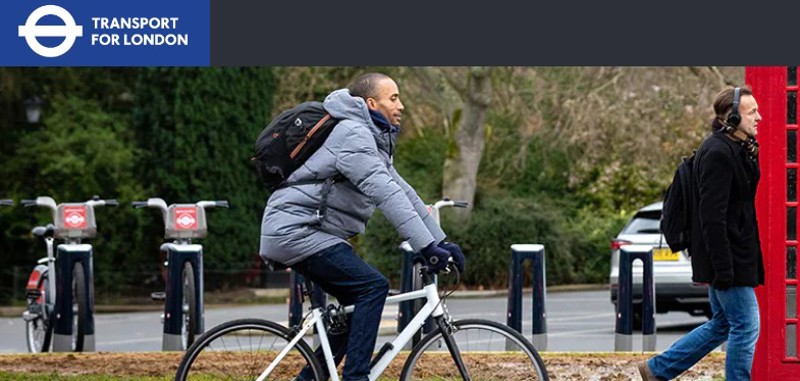Less than a fortnight left to register views on plans to improve road safety around Battersea Bridge
Published: Wednesday, January 11, 2023
- Transport for London proposals to improve safety on both sides of Battersea Bridge
- Scheme could deliver new pedestrian crossings, bus lanes, cycle signals and protected cycle track
- Proposals welcomed by Wandsworth’s cabinet member for transport
Share this

Local people now have just under a fortnight left to comment on Transport for London’s plans to improve road safety on both sides of Battersea Bridge.
TfL is carrying out a consultation into proposed changes to the northern and southern approaches to the bridge that include new pedestrian crossings, bus lanes, cycle signals and a section of protected cycle track.
The scheme aims to enhance safety for people walking and cycling in the area and have been broadly welcomed by Wandsworth’s cabinet member for transport Clare Fraser.
She said: "We welcome proposals to improve pedestrian and cycling access to Battersea Bridge on both sides of the river. This should be a safe way to cross the river for everyone, including families and the elderly, so we urge local residents to give their views on TfL's consultation which includes additional measures along the Battersea Bridge Road corridor to make road crossings safer."
TfL has already completed a set of safety measures on the north side of the bridge following a fatal collision in January 2021. This initial phase of work included a new pedestrian crossing, wider pavements and a new lower speed limit of 20mph.
Further measures are now being proposed. On the southern side of the bridge in Wandsworth they include:
• A new push-button pedestrian crossing on Battersea Bridge Road at Hester Road
• A bus gate, which would continue to improve bus journey times for buses travelling northwards
• A new pedestrian crossing at the Battersea Bridge Road / Battersea Church Road junction
• Extending the bus lane from Banbury Street northwards on Battersea Bridge Road to improve bus journey times
• Reconfiguring the crossing points at the junction of Battersea Bridge Road with the Prince of Wales Drive, widening pavements, removing the existing traffic island, and building two new push button crossings
• Banning the right turn from Battersea Bridge Road into Parkgate Road, and the left turn into the B305 to improve safety for people walking and cycling, including an "all green man" phase at the junction, and to help bus journey times
On the northern side in neighbouring Kensington and Chelsea the following changes are proposed
• New, straight-across, push-button pedestrian crossings on Cheyne Walk, Chelsea Embankment and Beaufort Street
• Banning the left turn into Beaufort Street to motor traffic to reduce delays and wait times at the turning point, and to improve safety and eliminate the risk of left turning vehicles colliding with cyclists. Cyclists will still be able to access Beaufort Street via a shared use footway
• Making improvements for cyclists at the junction by installing dedicated cycle signals and a section of segregated cycle track
• Building a new section of westbound bus lane from Royal Hospital Road to the bus stop at Beaufort Street to ensure bus journey times in the area are maintained
London's Walking and Cycling Commissioner Will Norman said: "These proposed changes will play an important role in reducing road danger and making it safer for people to walk and cycle near Battersea Bridge. We are determined to build a safer, greener city for all Londoners - and improving junctions is a key part of our Vision Zero action plan to eliminate death and serious injury from London's roads. I encourage all members of the community near Battersea Bridge to share their views on this consultation, so we can support everyone with safe and appealing routes to travel around London."
The consultation concludes on January 24. To take part online please visit https://haveyoursay.tfl.gov.uk/batterseabridge.The survey should only take ten minutes to complete but for those who would rather not fill in TfL’s questionnaire, comments can also be submitted directly via haveyoursay@tfl.gov.uk or in writing to FREEPOST TFL HAVE YOUR SAY (no stamp required).